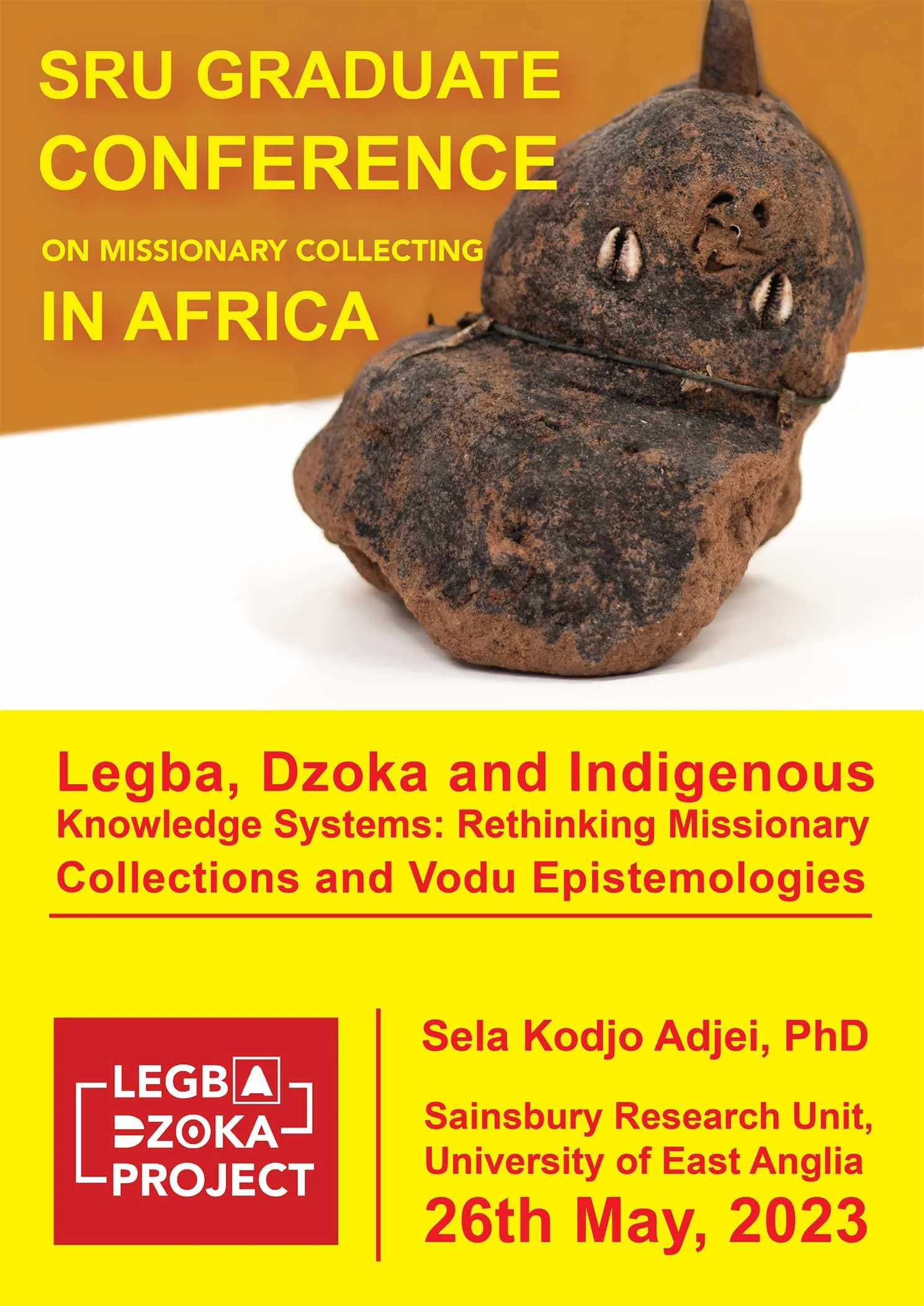Legba, Dzoka and Indigenous Knowledge Systems: Rethinking Missionary Collections and Vodu Epistemologies
SRU Graduate Conference: Missionary Collecting in Africa: a Comparative Analysis of Catholic and Protestant Missions
Norwich, United Kingdom, 26 May, 2023
Sela Kodjo Adjei, PhD
University of Media, Arts and Communication
Abstract
This study investigates both the spiritual and material aspects of collected Ewe cultural assets in European Museums to establish societal reconciliation with the colonial past and its afterlives. In broadening the discussion on how materiality relates to spirituality, I will focus on the Legba-Dzoka project, a collaborative multidisciplinary research that specifically studies a missionary collection in the Ubersee Museum collected by Carl Spiess, a German Missionary stationed between Ghana and Togo during the late 19th century. The discussion will further develop and explore alternative research methods and different possibilities of analysis to generate new knowledge on Ewe material culture. The paper will unpack Bremen missionary collections from South-Eastern Ghana and the interconnected histories specifically associated with the Legbawo and Dzokawo (pl.), to deepen the understanding of their biographies, material components, and the indigenous knowledge systems framed around them in order to re-examine their current state in the Ubersee Museum depot. As a collaborative project between researchers and Vodu practitioners, the study also serves as an academic platform for engaging research partnerships between African and European scholars to exchange insights about some broader epistemological frameworks and methodological issues associated with researching the material aspects of African spirituality. Throughout the Museum tours, my camera served as a collaborative research tool for data collection and audio-visual documentation of the missionary collections for further analysis and future research.
Keywords: Legba, Dzoka, Museum, Vodu, Culture, Epistemology, Art, Missionary Collections

